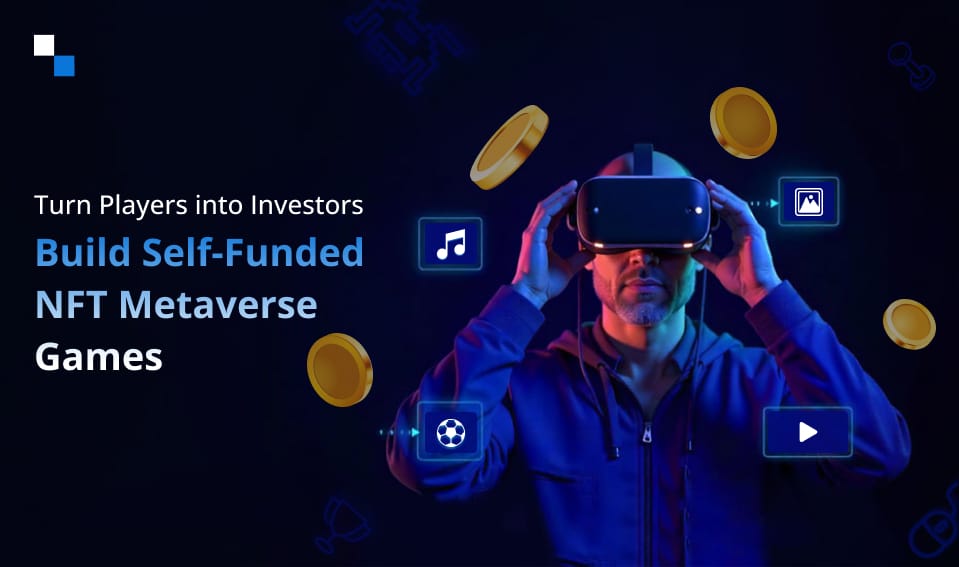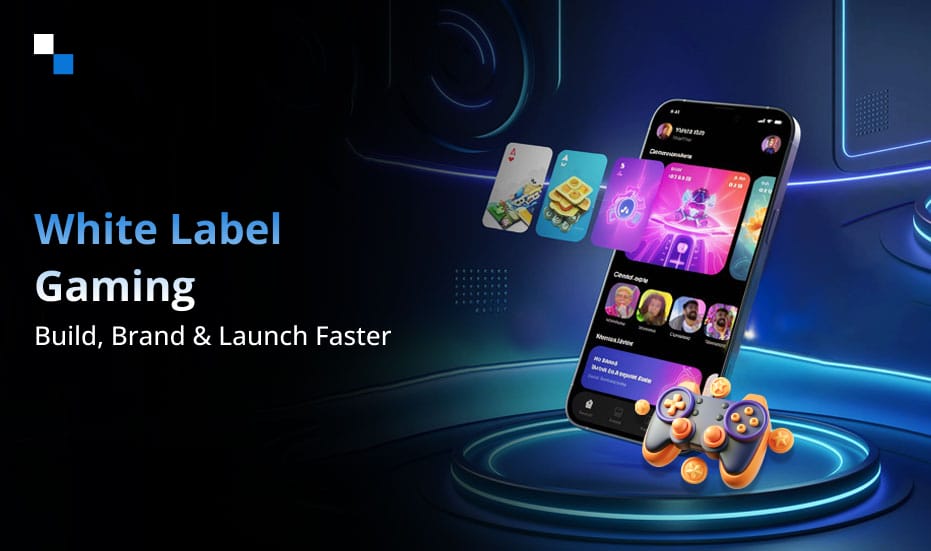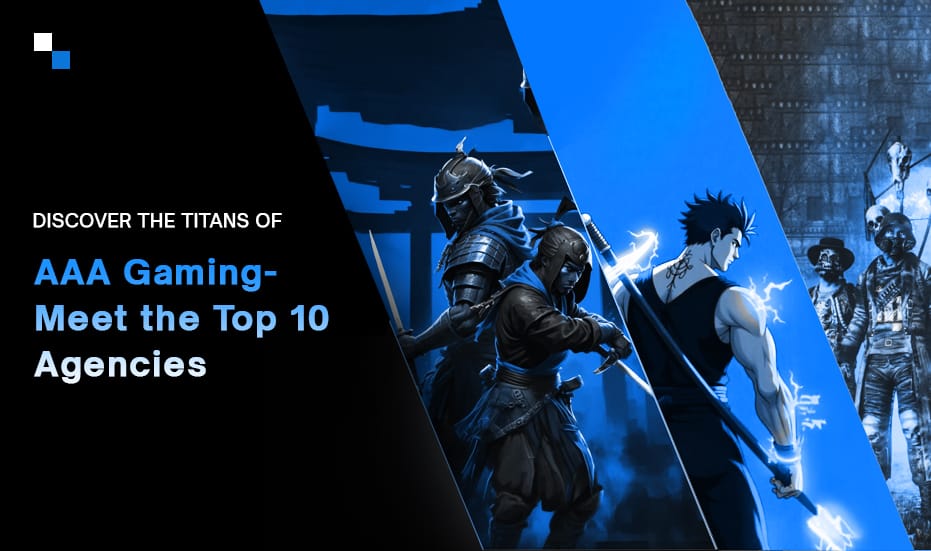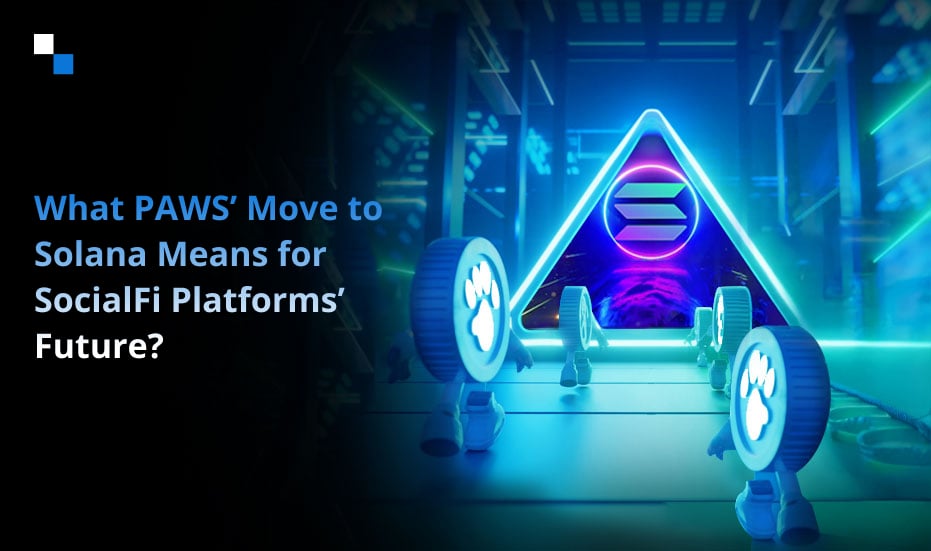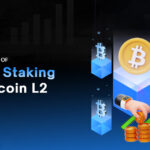
Why Is Bitcoin L2 the Top Choice for Liquid Staking Platform Development?
April 4, 2025
RWA Tokenization Lending Platforms: Overcoming Traditional Financing Limitations
April 7, 2025The digital revolution has birthed two transformative technologies: the metaverse and non-fungible tokens (NFTs). When combined with gaming, they create a lucrative ecosystem that redefines crowdfunding and revenue generation. For businesses, partnering with a metaverse NFT game development company offers unprecedented opportunities to engage global audiences, monetize creativity, and build decentralized economies. This article explores how NFT metaverse game development is reshaping traditional business models, empowering startups and enterprises alike to leverage blockchain-driven ecosystems for growth. We’ll delve into the mechanics of crowdfunding in virtual worlds, dissect innovative revenue streams, and analyze real-world success stories. Now, let’s jump right in.
Market Dynamics and Emerging Trends for NFT Metaverse Game Development

SOURCE- https://www.mordorintelligence.com/industry-reports/global-nft-gaming-market
The digital gaming market has undergone seismic shifts over the past decade, with NFTs and the metaverse emerging as game-changing components. Recent studies indicate that the global NFT market has experienced exponential growth, with total transaction volumes reaching billions of dollars. This meteoric rise is driven by increased investor interest, rising consumer awareness, and the promise of true digital ownership. In the gaming sector, the fusion of NFTs with immersive metaverse environments has unlocked new value propositions that appeal to both players and investors. This paradigm shift is a testament to the influence of a leading metaverse NFT game development company in the current market. Moreover, the concept of NFT metaverse game development continues to capture the attention of major stakeholders worldwide.
Key Trends Shaping the NFT Gaming Ecosystem
The evolution of the NFT metaverse gaming sector is influenced by several critical trends:
- Increased Adoption of Blockchain Technology:
With blockchain’s decentralized nature, both small developers and large studios are empowered to innovate, driving a surge in metaverse NFT game development activities.
- Surge in Digital Collectibles:
Gamers now value unique, tradable items that hold real-world value. This phenomenon has spurred a new wave of metaverse NFT game development company initiatives. - Expansion of Virtual Economies:
Virtual worlds are no longer mere playgrounds; they have evolved into thriving digital economies where players can buy, sell, and trade assets. As virtual currencies and NFTs become integral to these ecosystems, the scope for revenue generation and investor engagement widens. - Integration of DeFi with Gaming:
Decentralized Finance (DeFi) is merging with gaming to create novel monetization models. Through staking, yield farming, and liquidity mining, players can now earn passive income from their in-game assets, making every transaction a potential investment opportunity.
Innovative Crowdfunding Models in NFT Metaverse Game Development
The rise of blockchain technology has redefined how projects secure capital, with decentralized crowdfunding emerging as a cornerstone for NFT metaverse game development. Unlike traditional models, where platforms like Kickstarter offer backers limited rewards in exchange for one-time contributions, blockchain introduces dynamic, community-driven funding mechanisms. These innovations enable a metaverse NFT game development company to leverage tokenization, fractional ownership, and decentralized governance, creating transparent, inclusive, and mutually beneficial ecosystems for developers and investors alike.
1. Tokenized Funding: Aligning Investment with In-Game Value
In decentralized crowdfunding, projects issue digital tokens that represent stakes in the game’s economy or ownership of future in-game assets. For instance, during an Initial Game Offering (IGO), a metaverse NFT game development company might sell utility tokens tied to exclusive items, governance rights, or revenue-sharing opportunities. These tokens provide liquidity and tangible value, as their worth often correlates with the game’s success. Smart contracts automate processes like dividend distributions, ensuring transparency and trust. This model not only accelerates fundraising but also deepens community engagement by aligning investor incentives with the project’s long-term growth.
2. Fractional Ownership: Democratizing High-Value Investments
Blockchain’s ability to fractionalize ownership has revolutionized access to premium digital assets. In NFT metaverse game development, high-value assets like virtual land, rare characters, or unique skins can be divided into smaller, affordable shares. This democratization allows a broader audience to invest in assets that might otherwise be financially inaccessible. For example, a metaverse NFT game development company could split a 100,000 virtual state into 10,000 fractional NFTs, each priced at 10. Investors gain exposure to asset appreciation while developers benefit from increased participation and liquidity. Fractional ownership not only lowers entry barriers but also strengthens investor confidence by distributing risk.
3. Decentralized Autonomous Organizations (DAOs): Community-Led Governance
DAOs are reshaping how NFT metaverse game development projects operate, transforming crowdfunding into a collaborative endeavor. By integrating DAO frameworks, a metaverse NFT game development company empowers token holders to vote on critical decisions, such as feature updates, revenue allocation, or partnership approvals. This governance model fosters transparency and accountability, as every action is recorded on-chain. For instance, a game might allocate 20% of its revenue to a DAO treasury, with token holders deciding how to reinvest those funds. Such structures ensure that investors are not just backers but active stakeholders, driving the project’s direction while sharing in its success.

Remarkable Features and Mechanisms in Decentralized Crowdfunding
Innovative crowdfunding in the NFT metaverse gaming space is not limited to token sales and fractional ownership. Several advanced features and mechanisms are reshaping the investment landscape:
1. Smart Contract Automation
Smart contracts play a critical role in automating the fundraising process. They ensure that funds are securely held in escrow until predefined milestones are met. This automation minimizes human error and builds trust, which is essential for any metaverse NFT game development company.
2. Incentivized Backer Rewards
Unlike traditional models where rewards are often static, decentralized crowdfunding allows for dynamic reward structures. Investors can earn additional tokens or in-game benefits based on project milestones, user engagement, or market performance. This adaptive reward system increases investor retention and enhances the overall value proposition of the NFT metaverse game development.
3. Liquidity Pools and Staking
Integrating decentralized finance (DeFi) mechanisms such as liquidity pools and staking can further enhance the crowdfunding model. Backers have the opportunity to earn passive income on their investments by staking tokens, which are then used to provide liquidity on decentralized exchanges. This feature adds an extra layer of financial incentive and risk mitigation, making the model more attractive for metaverse NFT game development company projects.
Revenue Generation Models in NFT Metaverse Games
The NFT metaverse game development ecosystem thrives on innovative revenue models that blend entertainment, ownership, and financial incentives. Unlike traditional games, where revenue is limited to upfront purchases or ads, metaverse NFT game development companies create self-sustaining economies where players and developers mutually benefit. Let’s dissect these models:
1. Play-to-Earn (P2E) Mechanics
Play-to-earn (P2E) has redefined gaming by transforming leisure into a livelihood. In P2E games like Axie Infinity, players earn cryptocurrency or NFTs by completing tasks, battling opponents, or renting assets. For example:
- Scholarship Programs: Experienced players lend NFT characters (Axies) to newcomers, splitting earnings.
- Yield Farming: Staking in-game tokens in liquidity pools generates passive income.
This model has empowered communities in developing nations, such as the Philippines, where players earn more than the local minimum wage. A metaverse NFT game development company must balance profitability with engaging gameplay to ensure long-term success.
2. Virtual Asset Trading and Royalties
NFTs enable players to own, trade, and monetize in-game assets like virtual land, wearables, or characters. For instance:
- Decentraland’s Marketplace: Users buy/sell LAND parcels, with prices soaring to $2.4 million for prime locations.
- Royalty Mechanisms: Developers earn a 2–10% cut on every secondary NFT sale, ensuring perpetual revenue.
This model thrives on scarcity and utility. A sword NFT isn’t just art—it could grant special abilities in multiple metaverse games, thanks to interoperability. Partnering with a metaverse NFT game development company allows brands to create limited-edition assets (e.g., Nike virtual sneakers) that appreciate as demand grows.
3. Advertising and Brand Collaborations
The metaverse is a marketer’s playground. Brands like Coca-Cola and Samsung host virtual events, sponsor in-game items, or lease billboards in high-traffic zones. For example:
- Gucci Garden: A pop-up experience in Roblox where users buy digital Gucci items.
- Crypto.com Arena: A virtual replica of the LA stadium in Decentraland, driving fan engagement.
NFT metaverse game development unlocks hyper-targeted advertising. Imagine a racing game where players earn crypto by test-driving a virtual BMW. Such collaborations are win-win: brands gain exposure, while games monetize without disrupting immersion.
Crowdfund Smarter & Earn Faster with a Metaverse NFT Game Development Company
The fusion of NFTs, blockchain, and the metaverse is unlocking revolutionary funding and revenue models. Businesses can tap into decentralized economies, engage global communities, and future-proof their growth by collaborating with a metaverse NFT game development company like Antier. While challenges exist, the innovation potential is limitless, from virtual real estate empires to AI-driven adventures. As the lines between reality and the metaverse blur, one truth emerges: the next digital gold rush is here, and it’s programmable. Connect with our experts now to get started.
